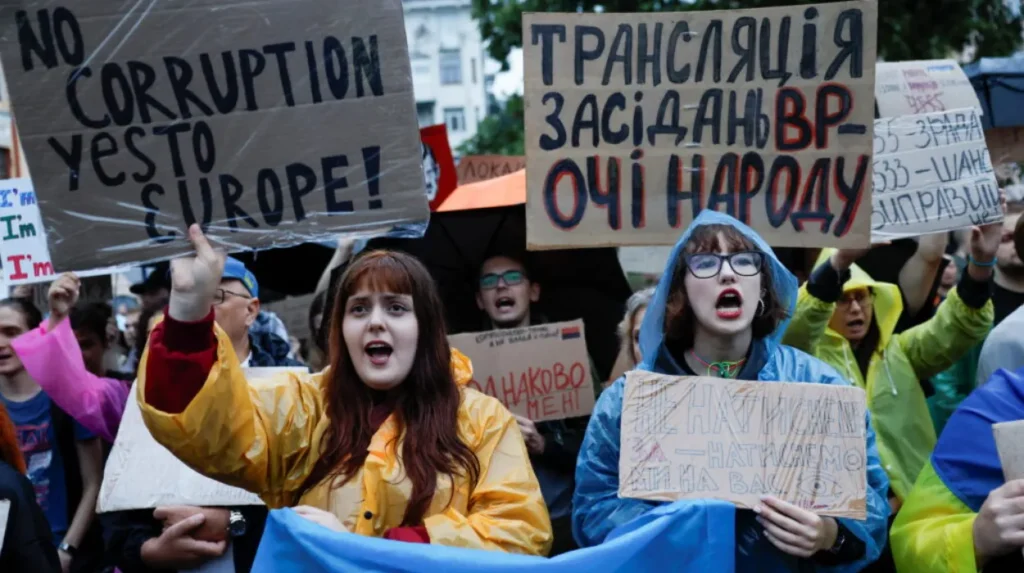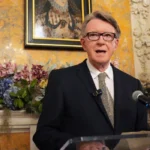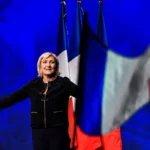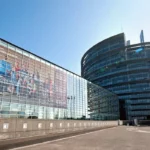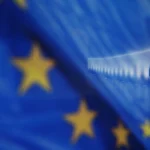The European Union has expressed serious concerns over a $100 million corruption scandal in Ukraine’s energy sector involving high-ranking officials, including associates of President Zelensky. EU officials, including Kaja Kallas and Ursula von der Leyen, have stressed the urgent need for Kyiv to take swift and serious action to combat corruption to safeguard Western financial aid and maintain trust. Ukrainian authorities have responded with ministerial dismissals and anti-corruption investigations.
EU Voices Concern on Ukraine Corruption Scandal Impacting Aid
As reported by Kaja Kallas, EU Foreign Policy Chief, via Reuters and echoed in multiple media outlets, the ongoing $100 million corruption scandal in Ukraine’s energy sector is “extremely unfortunate” and risks eroding the credibility of Ukraine with Western donors. Speaking on the sidelines of the G7 summit in Niagara-on-the-Lake, Canada, Kallas stated,
“There is no room for corruption, especially now. I mean, it is literally the people’s money that should go to the front lines.”
She urged Ukrainian authorities to act quickly and seriously in addressing the scandal, emphasising the critical nature of anti-corruption measures for continued EU support.
German Chancellor Friedrich Merz also reinforced European concerns over corruption in a phone call with President Zelenskyy, highlighting the geopolitical significance of Ukraine’s governance integrity amid ongoing conflict with Russia.
Details of the Corruption Allegations and Government Response
The Ukrainian National Anti-Corruption Bureau charged seven individuals, including Timur Mindich, a longtime business associate of President Zelensky, in connection with kickbacks and embezzlement within the energy sector an area heavily reliant on Western aid funding. Mindich reportedly fled Ukraine prior to a search of his apartment.
Following the revelations, President Zelensky publicly condemned the alleged scheme as:
“Absolutely unacceptable,”
and called for the dismissal of two cabinet ministers implicated in the scandal, demonstrating Kyiv’s commitment to accountability.
The Ukrainian Cabinet of Ministers, led by Prime Minister Yuliia Svyrydenko, formally proposed sanctions against key individuals involved, such as Timur Mindich and Oleksandr Tsukerman, sending a strong message supporting anti-corruption efforts.
European Commission and Officials Affirm Ukraine’s Anti-Corruption Progress
Despite the scandal’s gravity, the European Commission spokesperson Guillaume Mercier highlighted that the investigations validate the effective functioning of Ukraine’s anti-corruption institutions. Mercier stated that exposing corrupt officials
“proves Ukraine’s anti-corruption bodies are working,”
expressing continued confidence in Kyiv’s reform trajectory with EU backing.
Similarly, European Commissioner for Enlargement Marta Kos acknowledged the prevalence of corruption across Europe but stressed the importance of how governments respond to such challenges, reaffirming support for Ukraine’s ongoing reforms.
Danish Minister for Economy Stephanie Lose reiterated EU solidarity with Ukraine amid the energy scandal and underscored the necessity for Kyiv to maintain reform momentum.
Implications for EU Financial Aid and Ukraine’s War Effort
The corruption scandal has raised alarms among Western lawmakers and analysts about the future flow of aid, with warnings that such graft could erode trust and jeopardise crucial financial support needed for Ukraine’s defense against Russia’s military aggression.
Oleksandr Merezhko, a Ukrainian lawmaker from Zelenskyy’s party, was quoted by the Associated Press saying:
“It looks really bad in the eyes of our European and American partners.”
Political analyst Oleh Saakian noted the scheme involved
“millions, tens of millions of dollars,”
emphasising the timing of this scandal during wartime exacerbates its damaging potential.
EU Leaders Push for Use of Frozen Russian Assets to Fund Ukraine
Amid the funding concerns caused by the scandal, European Commission President Ursula von der Leyen communicated plans to use frozen Russian central bank assets held in Belgium to create a €140 billion “reparations loan” to finance Ukraine. Von der Leyen said this method was the “most effective way” to sustain Kyiv’s defense and economy, despite opposition from Belgium over legal risks.
She outlined alternative options, including raising funds via the EU’s central budget to tap capital markets or coordinating member states to raise money collectively, though both would impose higher costs amid strained national budgets.
Some EU Voices Call for Reconsideration of Aid Amid Corruption
The scandal has also prompted some critical voices, such as Hungarian Foreign Minister Péter Szijjártó, who argued that the EU should reassess sending European taxpayers’ money to Ukraine because of corruption concerns.
However, the overall stance among EU officials remains supportive of Ukraine, with reiterated calls for rigorous anti-corruption measures to protect the integrity of international assistance.
The $100 million corruption scandal in Ukraine’s energy sector has become a significant test for Kyiv amid its ongoing conflict with Russia. European Union officials, including Kaja Kallas and Ursula von der Leyen, have warned of the risk that corruption poses to continued Western financial aid and the country’s war effort. Ukrainian authorities have reacted decisively with criminal charges, ministerial dismissals, and sanctions proposals. Meanwhile, EU leaders continue to back Ukraine’s anti-corruption reforms while exploring innovative funding mechanisms, such as utilising frozen Russian assets, to maintain support despite governance challenges.

